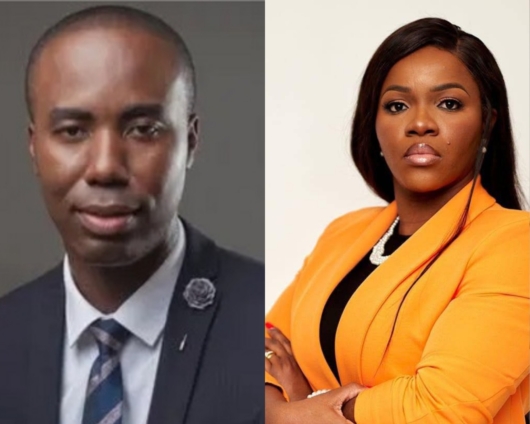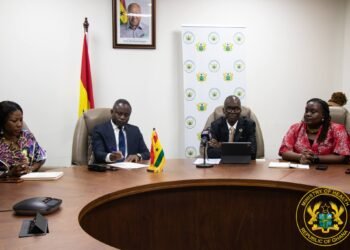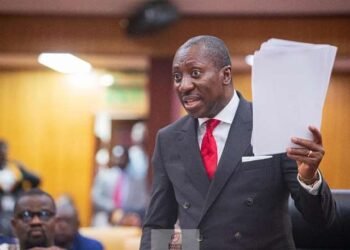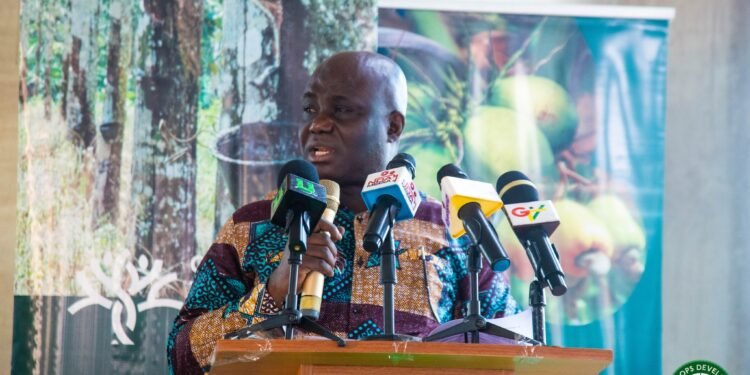The Supreme Court has unanimously dismissed an application seeking to prohibit the presiding High Court judge from continuing to hear the trial of former National Signals Bureau Director-General, Kwabena Adu-Boahene, in the ongoing ₵49 million cybersecurity funds misappropriation case.
A five-member panel of the apex court ruled that the application, which alleged bias on the part of the trial judge, was without merit and failed to meet the legal threshold required to warrant the judge’s removal.
The decision effectively clears the way for the continuation of the high-profile case that has drawn public attention due to its implications for accountability in Ghana’s cybersecurity sector.
In its ruling, the Supreme Court emphasized the need to preserve judicial integrity and prevent the abuse of applications that could unduly delay trials of significant public interest.
According to the justices, the application by the defense failed to demonstrate any real likelihood of bias or misconduct that could compromise the fairness of the ongoing trial.
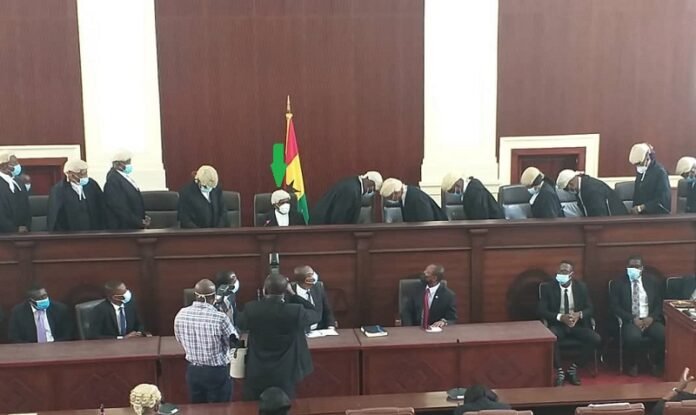
Counsel’s Disappointment
Counsel for the accused, Lawyer Samuel Atta Akyea, expressed disappointment following the ruling but maintained that his client’s legal team remains undeterred.
“I’m very disappointed by the Court’s decision, but not discouraged. We will see how the case will move on,” he told journalists after the verdict. Describing the ruling as decisive, Atta Akyea acknowledged the significance of the unanimous decision.
“The ruling was a 5-0 decision, and that is quite a heavy decision, so I doubt seeking a review. We will move on,” he said, suggesting that the defense intends to focus on the substantive trial rather than pursue another challenge.
When asked how it felt to return to the same judge whose impartiality his team had previously questioned, Atta Akyea remained composed. “I am not moved at all,” he replied.
“After all, it is the law I am going to project, not the judge. The only persuasion a judge will listen to is the law, and that is exactly what I am going to present.”
Lawyer Samuel Atta Akyea
The application stemmed from the ongoing prosecution of Kwabena Adu-Boahene and his associates over allegations of financial malfeasance in the management of cybersecurity funds.

The former intelligence chief, who once headed the National Signal Bureau, is standing trial on an eleven-count charge including theft, fraud, money laundering, and abuse of public office.
The charges, filed on April 30, 2025, by the Attorney-General’s Department before the High Court (General Jurisdiction Division) in Accra, allege that Adu-Boahene and his collaborators orchestrated an elaborate scheme to misappropriate over ₵49 million intended for the establishment and enhancement of Ghana’s cybersecurity infrastructure.
According to the prosecution, the accused persons in 2020 conspired to defraud the state under the pretext of procuring a sophisticated cyber defense system for the Republic of Ghana through a company known as ISC Holdings Limited.
Investigations later revealed discrepancies in procurement processes and financial transactions linked to the deal, leading to the charges.
The case also involves two other accused persons — Angela Adjei Boateng and Advantage Solutions Limited — both of whom are said to have played key roles in the alleged diversion of funds.
The third accused, Mildred Donkor, who was initially indicted alongside the others, has since been discharged by the Attorney-General’s Department and turned into a state witness, a move described by prosecutors as “strategic” to strengthen the government’s case.
Reaffirmation of Judicial Independence
The Supreme Court’s ruling as a reaffirmation of judicial independence in a case that has already become a test of Ghana’s anti-corruption resolve.
By dismissing the bias application, the apex court effectively signaled that procedural maneuvering would not be allowed to derail cases involving alleged abuse of public resources.
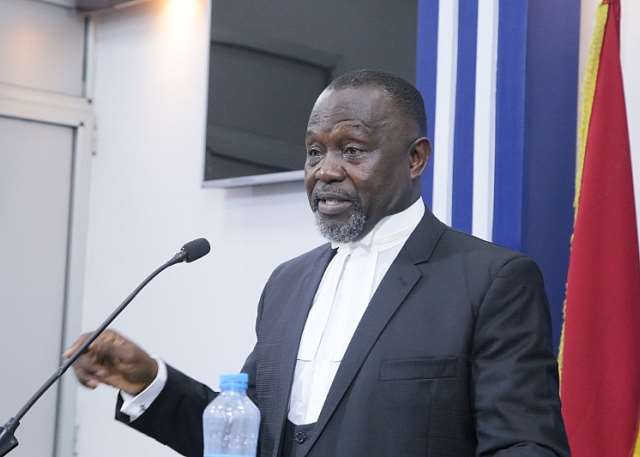
The Attorney-General’s Office, which has been pursuing the case as part of the government’s broader Operation Recover All Loots initiative, is expected to resume prosecution before the same High Court judge in the coming days.
The state maintains that the alleged infractions in the cybersecurity procurement process form part of a broader pattern of financial irregularities that plagued several national security projects in previous years.
While the defense insists that its client acted in accordance with due process and denies all wrongdoing, the prosecution is set to rely heavily on financial audit trails, official correspondence, and testimony from cooperating witnesses, including the recently discharged Mildred Donkor- to prove that Adu-Boahene and his associates diverted funds meant for critical national cybersecurity systems.
READ ALSO: IMF Endorses Ghana’s Policy Gains, Expects Positive Momentum to Continue into 2026

